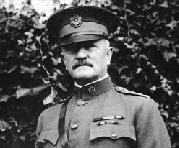|
Bar Ran Dun posted:But misogyny is bad. And asserting that our symbols to talk about God are only and have only been masculine is misogyny. I'm not disagreeing with you, though I don't think you are debating with anyone present here, since I've seen no one state that God, not just Jesus, is actually literally male. I just used your words to point out that "people might leave a religion" is not relevant if the question is "is this thing true or not?". Like, as an example, I believe all of the Christian churches teach that Jesus is the son of God. That will make some people leave the church but the teaching should not be altered because of it. It was just a side note to the actual ongoing conversation.
|
|
|
|

|
| # ? Apr 16, 2024 18:51 |
|
CrypticFox posted:Ultimately, trying to classify God into the category of "masculine," "feminine," or "neuter" is a fool's errand. Sorry for double post. Phone posting here. In some languages this is way easier a point to teach than in others. In Finnish not only there is no concept of grammatical gender or gendered pronouns but the word for both "sex" and "gender" is the same: "sukupuoli". It is a compound word make of "suku" (family in the large sense of the word, not only, like, mom and dad and on average 1.8 kids) and "puoli" (half). So, the word itself carries the implication that someone having a sex/gender is only half of the whole. In short: Linguistically, by definition, it's not possible for God to have a "sukupuoli" since it would require the existence of another God of a different "sukupuoli". Not to say people actually always think this far. We certainly have people who insist that God is literally male because He's called Heavenly Father.
|
|
|
|
Valiantman posted:I'm not disagreeing with you, though I don't think you are debating with anyone present here, since I've seen no one state that God, not just Jesus, is actually literally male. I was specially responding to this: Zazz Razzamatazz posted:There are well established reasons why God is referred to as He for all but the last few decades of Christian history.
|
|
|
|
We use familial words to talk about our relationship with God. Something Iíve always remembered is the assertion that when we talk about God with symbols we are also saying something about the symbol. If we use the symbol King to talk about Jesus we are also asserting something about Kings. So when we use familial terms to talk about God we end up implying things about our relationships within our actual families.
|
|
|
|
Bar Ran Dun posted:We use familial words to talk about our relationship with God. Something Iíve always remembered is the assertion that when we talk about God with symbols we are also saying something about the symbol. If we use the symbol King to talk about Jesus we are also asserting something about Kings. So when we use familial terms to talk about God we end up implying things about our relationships within our actual families. Wouldn't that also suggest that avoiding specific terms implies things, as well? I know that the Catechesis of the Good Shepherd uses that as an approach to children because "father" is so potentially fraught, for example.
|
|
|
|
Bar Ran Dun posted:I was specially responding to this: Yeah, I wasn't implying that God is male. I believe God is spirit and neither male nor female. I was saying that the position of the Catholic Church is that God has revealed Himself to humanity, and that He has chosen (for whatever reason) to use male pronouns to do that. In that view trying to force gender neutral pronouns on God is kind of ignoring how He has presented Himself throughout the ages.
|
|
|
|
Zazz Razzamatazz posted:I was saying that the position of the Catholic Church is that God has revealed Himself to humanity, and that He has chosen (for whatever reason) to use male pronouns to do that. In that view trying to force gender neutral pronouns on God is kind of ignoring how He has presented Himself throughout the ages. Yeah Iím not a fan of forcing. Iím saying we should be okay with people using other language than we use. They arenít us, their lives arenít ours, and their symbols will be different. I think you should look at what youíre doing. I think you should look at the conflating of how a community talks about God, with God speaking to us.
|
|
|
|
Jesus was male. I don't think there is any question about that. But could God, if it wanted to, have chosen to send a daughter instead of a son?
|
|
|
|
Zazz Razzamatazz posted:Yeah, I wasn't implying that God is male. I believe God is spirit and neither male nor female. See, I would be more inclined to think that this was a symptom of the times - that perhaps it was the people who assumed masculine pronouns of an all-powerful being. Until very recently it was a given that 'he' was the neutral pronoun in English, after all, and you'll still find people arguing that it is. Male is default in a lot of places, woman assumed to be a variation. To BK's point I think God easily could have but would it have taken root in that time and place? Did it have to be a man, for anyone to listen at all? I'm asking, I don't *know*. I've read a few books about 1st-century Palestine but I'm no expert or anything.
|
|
|
|
BattyKiara posted:Jesus was male. I don't think there is any question about that. But could God, if it wanted to, have chosen to send a daughter instead of a son? IMO, sure. Given how women were treated in society at the time, however, her life story would have been much different. Being an itinerant female preacher probably wouldn't have raised as much of a following. I think Jesus being male was pretty much necessary to accomplish his purpose on earth at that time and place. It's an interesting alt-history thing to ponder.
|
|
|
|
i dunno if the petty gender norms of 2000 years ago judea would have stood in the way of the messiah
|
|
|
|
Bar Ran Dun posted:Yeah I’m not a fan of forcing. I’m saying we should be okay with people using other language than we use. They aren’t us, their lives aren’t ours, and their symbols will be different. One of the ways Menno Simons described what he called "true evangelical faith" (speaking of loaded religious terms!) was that it "becomes all things to all people". I'm not a hundred percent sure what that was intended to mean but this discussion has made me think of it a lot.
|
|
|
Lutha Mahtin posted:i dunno if the petty gender norms of 2000 years ago judea would have stood in the way of the messiah
|
|
|
|
|
docbeard posted:One of the ways Menno Simons described what he called "true evangelical faith" (speaking of loaded religious terms!) was that it "becomes all things to all people". I'm not a hundred percent sure what that was intended to mean but this discussion has made me think of it a lot. how would the history of Anabaptism have gone differently if it was Womenno Simons??
|
|
|
|
martina luther would have written an entire book raging about the damnable curse of menses
|
|
|
|
docbeard posted:One of the ways Menno Simons described what he called "true evangelical faith" (speaking of loaded religious terms!) was that it "becomes all things to all people". I'm not a hundred percent sure what that was intended to mean but this discussion has made me think of it a lot. Truth is being; new truth is new being. I mean thatís an idea like back to the apostolic church fathers.
|
|
|
|
What are the terms under which a church enters communion with Rome? Like the Eastern Catholics (Uniate being a pejorative for some reason?) recognized the pope but kept many other aspects of their churches intact. Whatís required of them, and where are they given leeway?
|
|
|
|
Lutha Mahtin posted:martina luther would have written an entire book raging about the damnable curse of menses That may be how it was pronounced in the Middle Earth years of the early 16th Century but nowadays wouldn't it be better as "the damnable curse of men"? 
|
|
|
|
White Coke posted:What are the terms under which a church enters communion with Rome? Like the Eastern Catholics (Uniate being a pejorative for some reason?) recognized the pope but kept many other aspects of their churches intact. Whatís required of them, and where are they given leeway? in general, churches make their own rules, so there isn't necessarily just one set of things that a church would have to do, or agree to, in order to be recognized as in communion with rome. that said, the catholic church is not going to turn on a dime, so in general if another church was wanting to be in communion with them, the other church would likely need to already be pretty close to catholicism in terms of doctrine. then the two churches reach out to each other and start talking about whether they'd like to be in communion with each other, and how they would like to go about it the denomination i grew up in has made full communion agreements with some other denominations over the years. the high level overview of those agreements is that you have years and years of meetings, and then come up with pages and pages of words talking about how you agree on doctrines XYZPDQ, and you include lots of nice statements like "we are all brothers and sisters", and then (since we're talking about protestants) both of the denominations go and vote on the final agreement Lutha Mahtin fucked around with this message at 23:04 on Apr 18, 2021 |
|
|
|
White Coke posted:What are the terms under which a church enters communion with Rome? Like the Eastern Catholics (Uniate being a pejorative for some reason?) recognized the pope but kept many other aspects of their churches intact. Whatís required of them, and where are they given leeway? You may find this essay series edifying.
|
|
|
|
Your avatar and the work 'edifying' go well together. Don't know why I'm posting that but I feel called to do so.
|
|
|
|
Pershing posted:Don't know why I'm posting that but I feel called to do so. *hands over the certificate for the most Lutheran post of the month*
|
|
|
|
It was, thank you. I felt the quote from John Paul II "the Church must breathe with her two lungs" was rather moving.
|
|
|
|
Valiantman posted:*hands over the certificate for the most Lutheran post of the month* Pictured: Me and Valiantman endorsing the back of the certificate. 
|
|
|
|
i do not see the word "vocation" in that post
|
|
|
|
Ya know, in a lot of ways, I don't really like the modern world. I prefer history. But we can never really escape where and when we were born and as i listen to a lecture on Descartes that goes over the Reformation and all the wars that broke out over it, apparently one of the facts that was a strong determinant if your region or city went Protestant was if there was a printing press around. This connects to my first sentence because it reminded me of how I have argued in the past with some people who are more zealous about the past than I and also a Christian theologian friend about how people today are "better" Christians because they can actually.....ya know, read The Bible. That seems like the most basic part of being a Christian. But of course the Church back in the day refused to let local translations of The Bible. How can you be a good, faithful or informed Christians when you only speak...I dunno, German and The Bible is in Latin and only your local priest can read Latin? That theologian friend of mine disagreed and stressed this is part of my being a "modern." These things that seem so important to me didn't matter to people back then. It's like how it blew my mind when I did some vague research on European monarchies and found out how few of them belonged to the people they ruled over. The one that has always stuck with me is that the Romanovs weren't Russian. How do you have a Russian King who isn't Russian? But again, this thing that seems so intuitive to me (a Russian should probably rule Russia, etc.) just wasn't really a concern for people back then. Still, even Catholics soon relented and pushed for translations of The Bible into local languages. I remember reading about this when I got interested in Pascal last month.
|
|
|
|
From my external view: The Bible (and any sacred text) should be accessible to people who wish to read them, and there is certainly absolutely no value in concealing any religious text from a scholar. There might be marginal value in making some things, not concealed from scholars, but something that is not casually available - I am thinking here of some tantric practices, and things like the Freemason initiations. But this is along the lines of "No Spoilers," not "this information is not FOR YOU." However. There seems to be a good number of implicit assumptions that funnel into the view you are describing, NK. If I had to diagram them it would be something like: First, that the senior or primary doctrine of a religion rests in a particular text, which is authoritative. Second, that access to this text may directly lead to correct and accurate theological views and practices; in other words, that a plain and direct reading of the text will always provide either the "correct" answer, or deserves the benefit of the doubt over other arguments or theological viewpoints. Third, that derived concepts from the above are better, in whatever way, than ideas that are not completely derived from those postulates. Fourth, that the validity and salvatory power of a religious tradition derives from its proximity to the first and second points. I would say that these arguments are defensible but do not seem to stand as intrinsic absolutes. You can believe things to be another way and while you may be in error you would be making the equivalent of "there are some narrow situations where killing is justified," not "actually, murder is cool and good" in your argumentation. I would say that the first is never treated as true. There are always some forms of interpretations and the like which make a particular sect have its identity, although these will usually be cast as "common sense," "the plain reading," etc. And yet it seems like a common-sense plain reading of the text tends to produce the Arian heresy pretty commonly, too. The second, I think, has some real strength to it but it is questionable as an absolute. I know that I would separate (in Buddhism) "the dharma" in the sense of the cosmic descriptions of How It Works that the Buddha related, in large and sufficient part to allow the pursuit of liberation, to humanity of 500 BCE; and "the dharma" in the sense of the actual texts we have on hand, are not treated with 1:1 equivalence. (And of course there is just too much Buddhist literature around to handily put it in a single book, and probably always has been since the thought would have occurred to anyone.) The third and fourth seem highly dubious although they are defensible in general. However, there is already a very common "external interpretation" of the text of the Bible, which is that the Old Testament is mostly preamble - not really law-giving document, more like guidelines. So at a certain point the sola scriptora attitude looks very contingent and I see why it could be taken as a capital-m Modern idea.
|
|
|
|
|
Well (1) is more about the Abrahamic faiths. I learned very quickly when trying to study up on Asian religions for example that it is not as simple as "read this one book." That's a simplification of course but I hope you get my meaning. Since you brought up Buddhism, it has nothing like a single text which anyone who call himself a Buddhist should read. As for (2) its' not so much about accuracy. I very much believe in authority and deferring to experts in most things, theology, history, and philosophy included. There is so much about The Bible the average person won't understand because The Bible was written by people from a totally different world. The meaning and symbolism and things they invoke will go over our heads but they would have been understandable to the people being preached to back then. So we need experts to help explain these things so we can more readily identify with the original audience and writers of The Bible. No, I meant more that people should read the holy texts themselves because how else can you have faith? How can you know "I am Christian" unless you can read what Christianity is all about? The Gospels are not there just for a privileged few, they're three to inform everyone of the life of Jesus Christ. Shouldn't the Word of God be available to any soul who wants it? NikkolasKing fucked around with this message at 01:28 on Apr 27, 2021 |
|
|
|
NikkolasKing posted:Still, even Catholics soon relented and pushed for translations of The Bible into local languages. I remember reading about this when I got interested in Pascal last month. In the Syllabus of Errors (1864, so not precisely ancient), Pius IX condemns quote:IV. SOCIALISM, COMMUNISM, SECRET SOCIETIES, BIBLICAL SOCIETIES, CLERICO-LIBERAL SOCIETIES What's up with the condemnation of bible societies? That stuck out to me when I first saw it, although particularly in 1864 it's fascinating to see this list lumped together as "pests of this kind".
|
|
|
|
NikkolasKing posted:No, I meant more that people should read the holy texts themselves because how else can you have faith? How can you know "I am Christian" unless you can read what Christianity is all about? The Gospels are not there just for a privileged few, they're three to inform everyone of the life of Jesus Christ. Shouldn't the Word of God be available to any soul who wants it? I am Christian because I was baptized into Christ's death, I worship with Christ's holy, catholic, apostolic Church, and I believe the doctrines that that Church teaches, because it was revealed to her by God, who cannot deceive or be deceived. The Gospels are trustworthy because the Church produced them and tells me I can trust them; they aren't there for a privileged few, which is why I hear (am required to hear) a section of the Gospels every week, and I could, if I were sufficiently devoted, hear one every day. Faith isn't about knowledge, it isn't about the intellect, it's an action, a thing you do.
|
|
|
|
NikkolasKing posted:Shouldn't the Word of God be available to any soul who wants it? Yes but what is the Word of God? What specifically do you mean by that symbol? What does that symbol mean literally?
|
|
|
|
Bar Ran Dun posted:Yes but what is the Word of God? I just thought it meant the The Bible or specifically the parts of The Bible where Jesus speaks. Shouldn't a Christian be able to read about what their own Lord said and not have it denied to them for...what reason exactly should The Bible remain in Latin? That was my original point. I don't understand any use for this beyond simple control.
|
|
|
NikkolasKing posted:Well (1) is more about the Abrahamic faiths. I learned very quickly when trying to study up on Asian religions for example that it is not as simple as "read this one book." That's a simplification of course but I hope you get my meaning. Since you brought up Buddhism, it has nothing like a single text which anyone who call himself a Buddhist should read. One is "access to the texts of the religion," which I would agree should be maximized. I doubt there is much debate about this. I suspect, even, that medieval Catholics would have agreed with it in principle, and that any differences would be more down to very different ideas of the constitution of society rather than "I, Medieval Catholic Guy, believe that the peasants are sheep and should not be informed of Jesus's true teachings." This is probably something for the more historically minded to comment upon, but it is difficult for me to imagine that there was an explicit statement of No, Literally Only Priests, Ever, Should Read The Actual Bible, but rather that this was an effect of something else. The other is holding the religious text itself in reverence as some sort of super-artifact, which I think is common and widespread, but does not seem that it is necessary to hold to adherence in a particular religion. (Broadly construed, as opposed to a particular sect.)
|
|
|
|
|
Nessus posted:First, that the senior or primary doctrine of a religion rests in a particular text, which is authoritative. The second assumption is particularly problematic, as many of the early Christian heresies seem to have derived logically from review of the canonical texts.
|
|
|
|
NikkolasKing posted:I just thought it meant the The Bible or specifically the parts of The Bible where Jesus speaks. ďWordĒ is translated from Logos. In a literal, very, literal sense it is that which is spoken or said. It is also that which is thought, Reason when the enlightenment talks about it. Itís also the story or narrative. The essential of a thing. Itís also spoken in character. Itís also a loaded philosophical and religious term. In Philo and just in philosophy in general in the ancient world particularly with the stoics. Logos is the meaning and reason that permeates existence and is generative in the reason within each of us.
|
|
|
|
Nessus posted:This is probably something for the more historically minded to comment upon, but it is difficult for me to imagine that there was an explicit statement of No, Literally Only Priests, Ever, Should Read The Actual Bible, but rather that this was an effect of something else. It was in fact, more complicated than that. There was never actually a formal policy promulgated by the popes that bibles had to be exclusively in Latin, only a requirement that liturgical use be in Latin (even this was not always practiced). In fact, in the later Middle Ages, there are actually a number of bibles produced that include passages in both Latin and a vernacular language (usually German). There are about 80 of these that survive, mostly from the 13th and 14th centuries. Throughout the Middle Ages, monks and priests made use of translations of certain parts of the bible, such as Psalms, into vernacular languages for devotional and teaching purposes. As early as the 9th century, King Alfred of England ordered a translation of Psalms into English. The first full German translation was made in 1350, long before the Reformation began. Without a Printing Press, books of any kind, and especially these rarer translations were very expensive, and only available to churches, monasteries, and the wealthy. However, the wealthy did buy and use these quite a bit. We have a lot of surviving copies of privately owned bibles from the Late Middle Ages, some partially or fully translated. People who could afford these might use them for personal study much like we might today. The harsh reaction to translated bibles by the Catholic Church in the Reformation was more about what the reformers wanted to do with their translations rather then the mere existence of the translations. One of the problems with Medieval translations however, was that a lot of them were very poor translations. All Medieval translations in Western Europe worked from the Vulgate (A 4th century Latin translation), not the original Greek and Hebrew. As a result, some of these picked up on Latin aspects of the Vulgate that were not present in the original texts, and amplified them. Some of them also worked from poor manuscripts, and translated passages that had been badly corrupted. Almost no one in Western Europe knew Greek well enough to translate the New Testament. Some people knew enough to get by reading the original, but only a few scholars actually knew it well enough to effectively translate. No Christians knew Hebrew except for a few scholars who worked with Jews, and these people were very rare and were often viewed with suspicion. This problem was largely caused by the Church focusing on Latin, but that wasn't the only reason that knowledge of Greek largely vanished in the West. Regardless of why this issue emerged, it posed a serious problem for the reliability of any translations being produced. The Vulgate had been translated by someone who could read Greek, Hebrew, and Latin fluently, and who consulted texts in the original language they were written in. However, by the later Middle Ages, there were only a handful of scholars who could have done this, and they generally showed little interest in producing vernacular translations. It made some sense to stick with a translation they were confident in, instead of risking corruption of the message by relying on something that had been translated by someone who could not read the original texts. Of course lots of people in the East could still read the Greek just fine, and they read the New Testament in its original language. Liturgical readings of New Testament passages remained intelligible to listeners in Eastern Churches well into the Middle Ages, although over time the Greek of the New Testament became more and more archaic compared to the spoken language. CrypticFox fucked around with this message at 08:16 on Apr 27, 2021 |
|
|
|
NikkolasKing posted:I just thought it meant the The Bible or specifically the parts of The Bible where Jesus speaks. If I can't read, but I hear what my own Lord said every Sunday when I worship with His Church, and I see art depicting scenes from the Scriptures that my Lord gave His Church, I'm not having anything denied to me. If all books are hand-copied, and I can't afford a copy of my own, my lack of a personal Bible isn't about societal control, it's about money. Moreover, it is a very recent idea to think that a person should just be able to pick up the Bible and be their own interpreter; you read a passage, or have it read to you, and then you interact with your own church community about what it means, and ideally this is a community in communion with the bishops who are the successors of the apostles selected by Christ. (Protestants eunt domus) yeah yeah it's the Message I want to quote it as a story posted:Godís angel spoke to Philip: ďAt noon today I want you to walk over to that desolate road that goes from Jerusalem down to Gaza.Ē He got up and went. He met an Ethiopian eunuch coming down the road. The eunuch had been on a pilgrimage to Jerusalem and was returning to Ethiopia, where he was minister in charge of all the finances of Candace, queen of the Ethiopians. He was riding in a chariot and reading the prophet Isaiah.
|
|
|
|
zonohedron posted:If I can't read, but I hear what my own Lord said every Sunday when I worship with His Church, and I see art depicting scenes from the Scriptures that my Lord gave His Church, I'm not having anything denied to me. If all books are hand-copied, and I can't afford a copy of my own, my lack of a personal Bible isn't about societal control, it's about money. And how do you know the Church, or even just your local priest, isn't full of poo poo and lying to you if you can't confirm anything they say or do on your own? Again, it's not about deferring to authority. It's about blind, mindless faith in authority. I imagine anybody in the English-speaking world hears Bible quotes brought up semi-regularly to support lovely, lovely arguments. As Christians, you probably notice and take offense to this more than most.. But how would you know Evangelical rear end in a top hat A is making up stuff or taking it out of context unless you could red The Bible yourself? NikkolasKing fucked around with this message at 15:25 on Apr 27, 2021 |
|
|
|
How do you know your translated bible is any more accurate then the local priest?
|
|
|
|

|
| # ? Apr 16, 2024 18:51 |
|
NikkolasKing posted:And how do you know the Church, or even just your local priest, isn't full of poo poo and lying to you if you can't confirm anything they say or do on your own? If I don't trust what my priest is saying, I can ask his bishop. If I don't trust my bishop, I can ask other bishops. That's how I confirm what they're saying, not by reading a passage and saying "but I think it means this Edit to answer your edit: quote:I imagine anybody in the English-speaking world hears Bible quotes brought up semi-regularly to support lovely, lovely arguments. As Christians, you probably notice and take offense to this more than most.. But how would you know Evangelical rear end in a top hat A is making up stuff or taking it out of context unless you could red The Bible yourself? zonohedron fucked around with this message at 15:34 on Apr 27, 2021 |
|
|




































